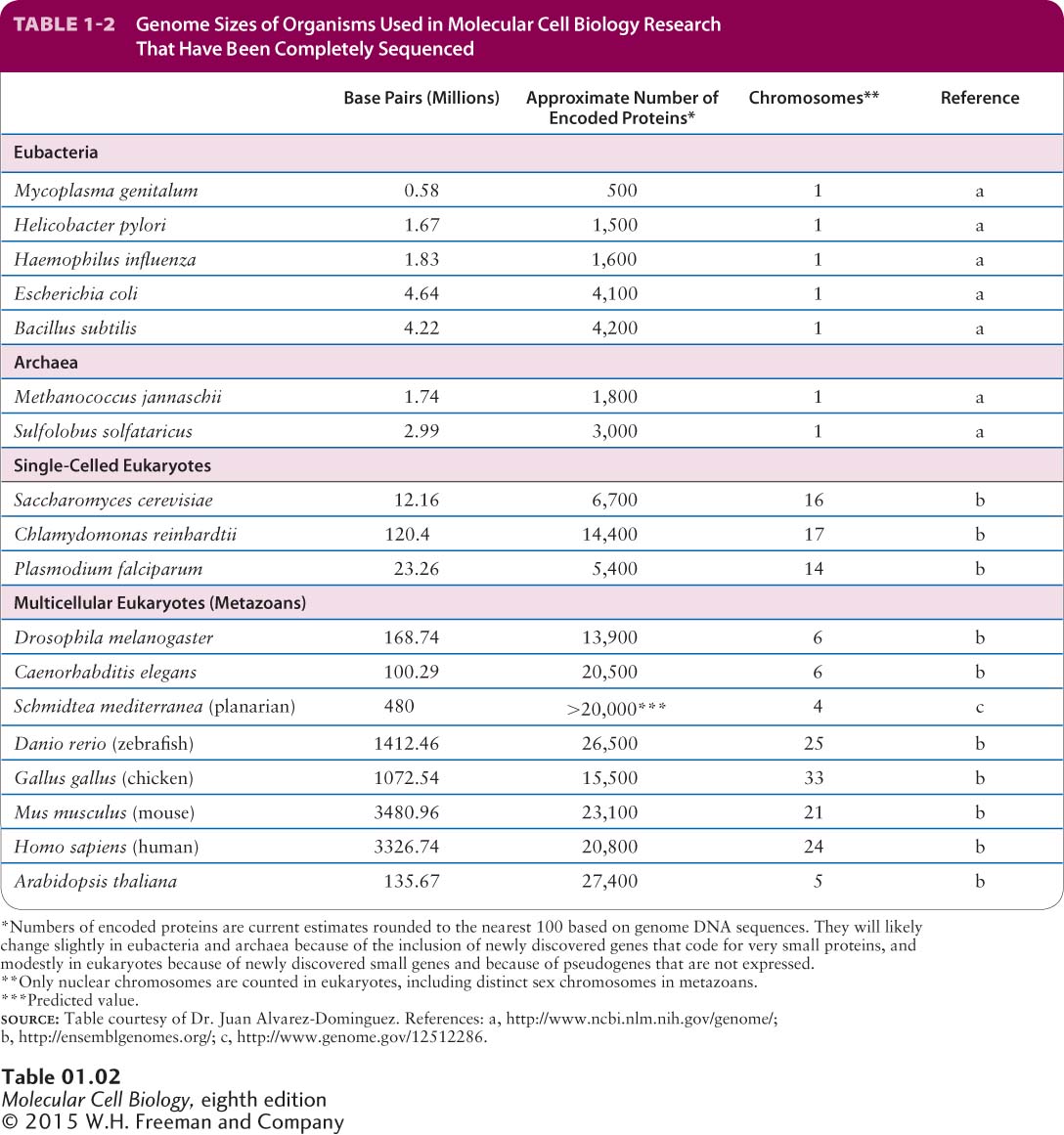Escherichia coli Is Widely Used in Biological Research
The bacterial lineage includes Escherichia coli, a favorite experimental organism, which in nature is common in soil and in animal intestines. E. coli and several other bacteria have a number of advantages as experimental organisms. They grow rapidly in a simple and inexpensive medium containing glucose and salts, in which they can synthesize all necessary amino acids, lipids, vitamins, and other essential small molecules. Like all bacteria, E. coli possesses elegant mechanisms for controlling gene activity that are now well understood (see Chapter 9). Over time, researchers have developed powerful systems for genetic analysis of this organism. These systems are facilitated by the small size of bacterial genomes, the ease of obtaining mutants, the availability of techniques for transferring genes into bacteria, an enormous wealth of knowledge about bacterial gene control and protein functions, and the relative simplicity of mapping genes relative to one another in the bacterial genome. In Chapter 6 we see how E. coli is used in recombinant DNA research.
Bacteria such as E. coli that grow in environments as diverse as the soil and the human gut have about 4000 genes, encoding about the same number of proteins (Table 1-2). Parasitic bacteria such as the Mycoplasma species acquire amino acids and other nutrients from their host cells, and they lack the genes for enzymes that catalyze reactions in the synthesis of amino acids and certain lipids. Many bacterial genes encoding proteins essential for DNA, RNA, protein synthesis, and membrane function are conserved in all organisms, and much of our knowledge of these important cellular processes was uncovered first by studies in E. coli and other bacteria. For example, certain E. coli membrane proteins that import amino acids across the plasma membrane are closely related in sequence, structure, and function to membrane proteins in certain mammalian brain cells that import small nerve-

Page 12
Because many of its genes and proteins, as well as their functions, are conserved in all organisms, E. coli has been chosen by scientists as a favorite model organism: an experimental system in which the study of specific genes or proteins, or aspects of cell or organismal function or regulation, can provide an understanding of similar molecules or processes in other species. Throughout this chapter, we will encounter other model organisms that have been chosen because, like E. coli, they are easy to grow and study. Of course, many bacteria cause serious diseases, and research on them is often focused on understanding their unique biology and on discovering antibiotics that selectively kill them but not their human or animal hosts.